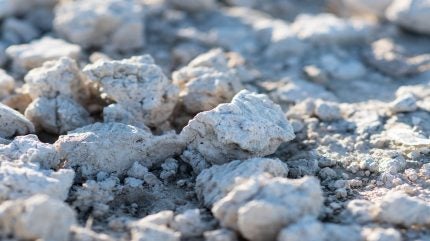Rio Tinto’s $US6.7 billion ($10 billion) acquisition of Arcadium Lithium has been unanimously approved by both companies’ boards of directors, with the deal expected to be finalised by mid-2025.
Rio and Arcadium have synchronicities that elicited the transaction, which was officially announced in October.
Both companies operate in similar jurisdictions, including Argentina where Rio Tinto is developing its Rincon lithium project and Arcadium is operating its Salar Del Hombre Muerto, Olaroz, Sal de Vida and Cauchari lithium assets. Rio Tinto will also be able to leverage Arcadium’s multinational upstream lithium capabilities and downstream processing offerings.
While the transaction still needs approval from Arcadium’s shareholders and the Royal Court of Jersey and is subject to customary regulatory approvals and other closing conditions, it will establish Rio Tinto as the world’s third-largest lithium miner, only behind Albemarle and Sociedad Química y Minera de Chile S.A. (SQM).
“We are confident that this is a compelling cash offer that reflects a full and fair long-term value for our business and de-risks our shareholders’ exposure to the execution of our development portfolio and market volatility,” Arcadium president and chief executive officer Paul Graves said.
“This agreement with Rio Tinto demonstrates the value in what we have built over many years at Arcadium Lithium and its predecessor companies, and we are excited that this transaction will give us the opportunity to accelerate and expand our strategy, for the benefit of our customers, our employees, and the communities in which we operate.”
During the September 2024 quarter, Arcadium Lithium achieved an average realised pricing of $16,200 per product metric tonne for its combined lithium hydroxide and carbonate, contributing to $203.1 million in revenue.
The company also achieved an attributable GAAP (generally accepted accounting principles) net income of $16.1 million, or one cent per diluted share, and $42.9 million in adjusted earnings before interest, taxes, depreciation, and amortisation (EBITDA).
Arcadium credited the lower adjusted EBITDA compared to the previous quarter to lower average realised prices and lower spodumene volumes, as well as higher production costs.
The company’s total volumes in the September quarter were six per cent lower on an LCE (lithium carbonate equivalents) basis, with higher spodumene volumes more than offset by lower hydroxide and carbonate volumes.
This was largely due to weaker overall demand and a slow production ramp-up of the Olaroz Stage 2 lithium carbonate expansion in Argentina.
“We continued to deliver strong average realized pricing in a challenging market in the third quarter, supported by our commercial strategy in lithium hydroxide which focuses on long term strategic customers,” Graves said.
“Our nine-month year-to-date average realized pricing of $18,000/t for combined hydroxide and carbonate demonstrates our ability to achieve higher pricing than market indices in current market conditions.
“We remain focused on cost and operational discipline, executing cost saving initiatives and prudently advancing our expansion projects, prioritising Sal de Vida and Nemaska Lithium.”
Subscribe to Australian Mining and receive the latest news on product announcements, industry developments, commodities and more.




